How will we measure the success of this project?
We have arrived in Nairobi after an interesting and encouraging few days in post distribution meetings in Mombasa. On Monday, we met with the three Relief Coordinators of World Renew’s partner, Pwani Christian Community Services. During these meetings we received and provided reports about the various aspects of the first food distribution. We were all greatly encouraged by the sharing and learning that happened there. One of the objectives for that day, as IRMs, was to set the schedule for the next distribution. After that was done, we spent a day meeting with the suppliers and inspectors to see if they could also honour our proposed schedule. We praise God for the positive response!
In our last blog we promised to discuss how we will measure the success of this project. World Renew is receiving funding from the Canadian Foodgrains Bank in support of this project. One of the stipulations of this funding is that World Renew will conduct a baseline survey at the first distribution and an end of project survey at the last one. Each of these is done on a random sample of 10% of the beneficiaries. The hope is that we will have some measurable positive changes after 6 months. We designed the first survey based on the objectives of our project, plus some general inputs. The general objectives of the project are:
- The increased consumption of maize, split peas and oil at the household level,
- The increased consumption and use of water at the household level, and
- A reduction in negative coping strategies.
Although the survey still requires analysis, we will share some of the interesting tidbits that we have learned from speaking with the enumerators and a quick scan of the surveys.
The first question was to assess the size of each beneficiary household. Upon a quick perusal, between 6 and 14 people “eat from the same pot”. We asked for the ages of the people in each household. This was the most difficult question for the enumerators to deal with as many were born at home with no official birth registration. Instead of numerical answers, their birth dates were described by “events” around the birth such as war, previous droughts, political events etc.
The next questions concerned the number of meals they had per day and what these consisted of. We do not have the official analysis but it seems on the surface that one meal a day is the norm. The enumerators were trained to properly assess answers to this question as many beneficiaries consider even tea with milk as a meal. The variety in the diet was very minimal: mostly ugali (ground up maize), ugali, ugali and sometimes a vegetable. Our hearts’ desire is that there will be a clear increase in the caloric and nutritional value of the diets.
This is a food for assets (work) project. In exchange for receiving the food rations, each family is asked to spend 12 days per month either digging in a new, or deepening an existing local water pan to benefit themselves and their community. Therefore, we included questions about how far the beneficiaries have to walk, or how long it takes them to get to their nearest water source, how much water they use daily and for which purposes. It is hoped that when/if the rains come to fill these water pans there will be an improvement in these figures.
The last concern addressed in the survey was the issue of negative coping strategies. This deals with the the types of things that people resort to doing in order to provide food for their family during times of urgent need. These include such things as taking children out of school in order to send them out to earn a wage as day laborers, having husbands or other family members leave their families in order to find work in metropolitan areas, cutting down trees in order to make and sell charcoal (an environmental hazard – see article here), engaging in prostitution and other harmful practices. It is sincerely hoped that by receiving food there will be a reduction in these coping methods.
Next week, look for a “how to” step by step distribution – photo enhanced!


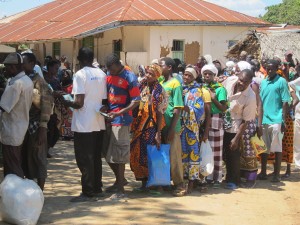
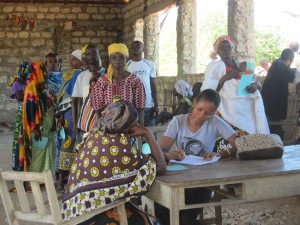
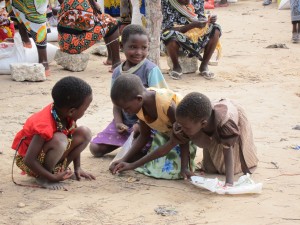
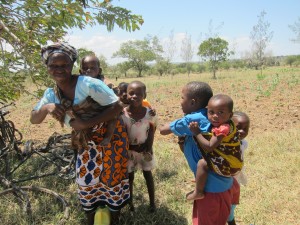
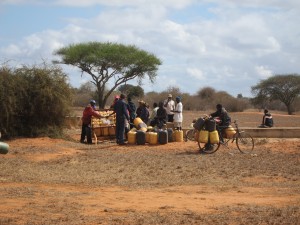
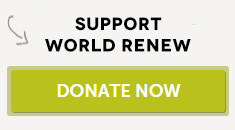
Have you heard of the runaway success of the ‘Farming God’s Way’ in Mozambique.
apparently it has taken the country from being a net food importer to being a net exporter – to the point that President Mugabe is trying to take credit. This is the program that Sue and Andrew worked so hard at while they were in Kenya two years ago. Perhaps it might have some relevance to your World Relief program.
This is a major programe among local churches and farmers which is being supported by the government, NGO’s and international aid agencies and out own Derk Matte’s “Transformation’ ministry.
Am reading the blog from Trillium hospital where Jim is recovering from surgery – he sends his greetings and gratitude for your prayers! We continue, in turn, to pray for you as you do God’s work in Kenya.
You are in my thoughts and prayers – I am so proud of you and honored to call you my friends.
Be safe
I love you
interesting reading regarding the impact and evaluation of what is being done for and with these folks. It is the hope that these people eventually will create and have sustainable farms, being able to provide for themselves and each other. We continue prayerfully God’s blessings in all you do!
it is with joy and thankgiving to god that we follow your weekly blog,wich gives us just a little exposure to the struggle and hardships the poeple in Kenya live with day by day.
We so often take food and clean water for granted.
we thank god for your work there and pray for his blessings on all you do in his name.
Much love from Ann & George
Impact evaluation, was fascinating. Charcoal Production was very interesting, and helped me understand, a little better, how complicated it is to help the Kenyan’s solve their daily living problems. Their efforts to just provide for a bare minimum of food, is like a house of cards, or a tangled web. One effort, disturbs, the delicate balance of providing food and resource for the long term. Oh Harry and Annie, thank-you, for being Christs hands and feet there. I will continue praying for you as well as the rest of the team you work with. May you also have enough time to refresh yourselves, physically, emotionally and spiritually. THis project is full of hope. Blessings to you all and all those you serve.